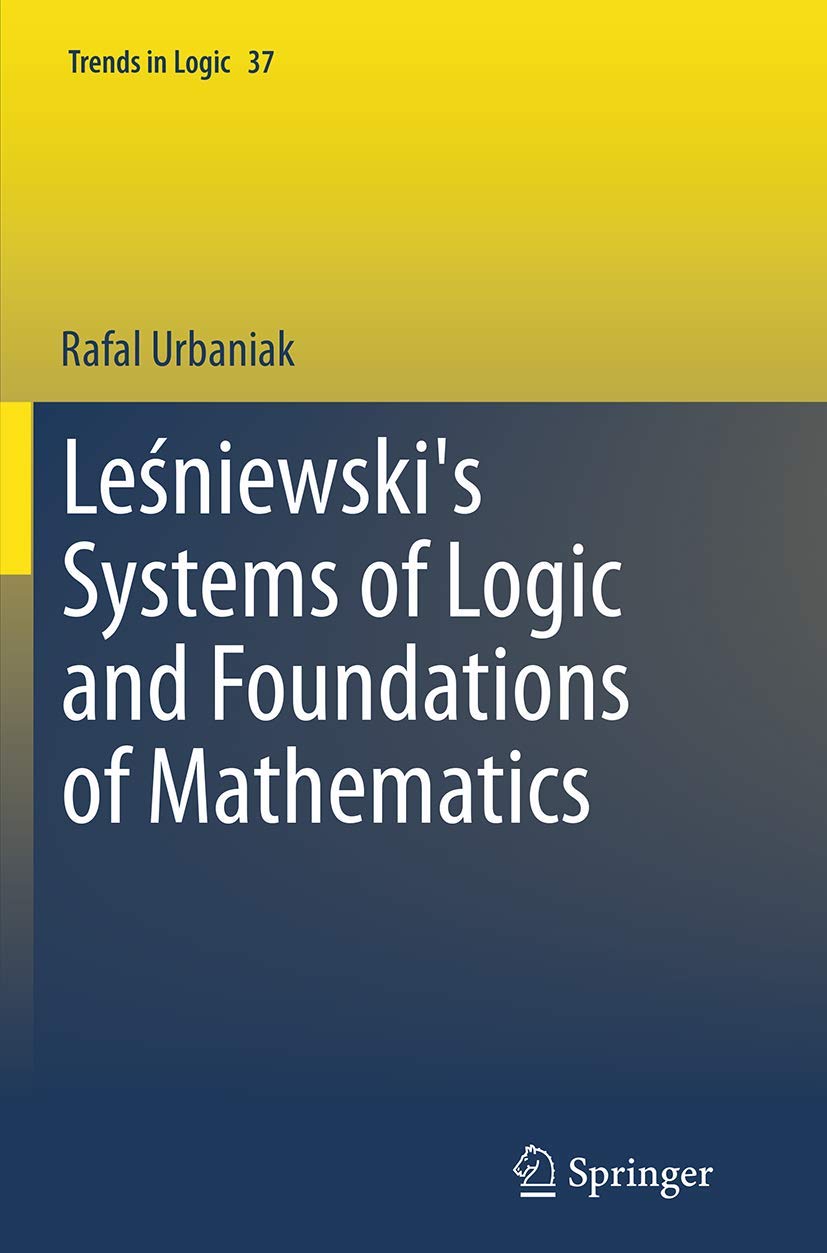Leśniewski's Systems of Logic and Foundations of Mathematics (Trends in Logic, 37)
Leśniewski's Systems of Logic and Foundations of Mathematics (Trends in Logic, 37) is backordered and will ship as soon as it is back in stock.
Couldn't load pickup availability
Genuine Products Guarantee
Genuine Products Guarantee
We guarantee 100% genuine products, and if proven otherwise, we will compensate you with 10 times the product's cost.
Delivery and Shipping
Delivery and Shipping
Products are generally ready for dispatch within 1 day and typically reach you in 3 to 5 days.
Book Details
-
Publisher: Springer
-
Author: Rafal Urbaniak
-
Language: English
-
Edition: Softcover reprint of the original 1st ed. 2014
-
ISBN: 9783319344164
-
Pages: 242
-
Cover: Paperback
-
Dimensions: 9.3 x 6.1 x 0.6 inches
About The Book
Rafal Urbaniak’s Stanislaw Leśniewski: A Critical Assessment offers a detailed and scholarly examination of the philosophical legacy of Stanislaw Leśniewski, a central figure in the Lvov-Warsaw school and one of the early 20th century’s most influential logicians. Distinctly focused on primary texts, this volume avoids secondary commentary, providing a thorough and critical exploration of Leśniewski’s foundational ideas in mathematical logic and analytic philosophy.
Leśniewski’s alternative to the Principia Mathematica—composed of three interconnected systems: protothetic, ontology, and mereology—is examined in depth. The book also covers his early philosophical views, his important contributions to set theory, and his pioneering work on nominalism and higher-order quantification.
A mentor to Alfred Tarski and many others, Leśniewski’s influence on the development of formal logic and the analytical tradition is profound. Urbaniak’s work serves as a comprehensive and meticulous resource for students and scholars of logic, philosophy of language, and the history of analytic thought, offering rich insights into the structure and impact of Leśniewski’s groundbreaking work.





